- Home
- Kay Hooper
Hidden Salem Page 8
Hidden Salem Read online
Page 8
And he’d known she would, her father.
He’d known.
Bastard.
* * *
—
BETHANY KNEW MORE time had passed, but she still didn’t know how much. She had worn herself out a second time and had fallen into a deep sleep in which nightmare creatures chased her, claws stretched out to catch her as she ran and ran through a twisting cave filled with rusting cages and crying little girls.
She woke suddenly with a whimper, the terror still raw in her throat, shaking her body. She forced herself to take several deep breaths, suddenly aware of two things. She was really thirsty.
And she really had to pee.
She cringed away from the idea of pushing her jeans and panties down and squatting in a corner of her very small cell, feeling shame and guilt. But if she didn’t do that . . .
Bethany pushed the thought away and tried hard not to think of her painfully full bladder. She concentrated again, as she did every time she was awake, on how she could escape.
She didn’t have any of the Talent, so she couldn’t call on that. Her family wasn’t gifted that way. She wasn’t even supposed to know about the Talent, really; she knew that much from listening to grown-ups when they hadn’t realized she was there.
The five families had almost all the Talent; she knew that. Oh, there were a few others scattered about, or she was pretty sure there were. Only they weren’t helped like the Five helped their own people learn to use the Talent.
So sometimes things happened.
Sometimes the people who didn’t belong to the Five but had the Talent messed up and did things they weren’t supposed to because they couldn’t control the Talent.
That’s what Bethany had heard. And she’d heard that sometimes . . . not often, but sometimes . . . people outside the Five who had Talent just went away.
She tried to concentrate on that, on anything that helped her forget where she was. But it only worked for a little while, and then she found herself whimpering again.
She wasn’t strong or tough, no matter how much she’d like to be. So all she could do, really, was sit in this cold cell inside the damp cave that was beginning to feel very, very small, and try as hard as she could to wish herself elsewhere.
But not even the vivid imagination she used to pretend was her own special Talent could magically take her somewhere else. Instead, she opened her eyes to find she was still here, in this awful cage in the awful cave.
She had put the little tray with its little cup and bowl right at the narrow slot where someone had pushed it through. She had even pushed it partway through that slot, hoping that someone would hear or peer around that curve she couldn’t see around and understand that she was really hungry and awfully thirsty.
That had been before she had fallen asleep the last time. But the tray was still there, with its cup and bowl still as empty as she had left them. And she thought it had been a long time since she had drunk the little bit of water and thin chicken broth.
A very long time.
Bethany tried not to let that scare her even more.
She really tried.
* * *
—
NELLIE WASN’T SURE what she had expected Salem to look like, but it surprised her. Maybe because it looked so . . . normal. The road into town brought her in at one end of what must have been the downtown area, sort of on a rise, so she could rest her foot on the brake—there was no traffic near—and look down and see both the town and most of the valley spread out.
She counted three shining white church steeples, which was typical for this part of the country; there would probably be smaller, less obvious churches, most not mainstream Baptist but close enough that they were acceptable or at least tolerable to the people of Salem.
She could see a car dealership, strands of multicolored triangular flags fluttering in the breeze and one of those tall, tubular, air-driven figures that bowed and leaned and looked altogether weird but had become a normal part of advertising some sale or other.
Nellie could see only one bank from where she paused on the rise, but it was a large one, one of the biggest buildings in town. A range of other businesses, including dozens of small stores or boutiques, restaurants and cafés, a drugstore (not called a pharmacy), and at the far end of Main Street, some distance from the “end” of downtown, what looked like a large grocery store.
Normal.
It was a Friday afternoon, though still early, so there were people about, far more foot traffic than cars. Most walked with a purpose likely due at least in part to the chill in the air, though a few seemed to stroll or window-shop, and there was fairly brisk traffic going in and out of the various stores and businesses. Nellie counted four people walking dogs, which made her feel a little better about having Leo with her; clearly, walking dogs downtown was allowed, as long as they were leashed.
It was what the somewhat remote but efficient innkeeper of the Hales Bed and Breakfast had told her when Nellie had called ahead to make her reservation. “Well-behaved” dogs were welcome in the B and B and in the town itself. Though not, of course, in restaurants, unless it was one of the cafés with outdoor tables.
Nellie hadn’t exactly been left with a warm and fuzzy feeling of welcome after that conversation, but she had reserved what Ms. Payton had referred to as a mini-suite: bedroom, bathroom, small sitting area, and even a compact kitchenette.
Unusual for a B and B, Nellie thought, but she hadn’t stayed in enough of them to know how unusual. She did, however, like having the option of stocking her little kitchen and eating in at least some of the time, especially since she not only was accustomed to living alone, but was also traveling alone and disliked eating alone in restaurants—in small towns, at least. In large cities, no one noticed or cared.
At least all the space of the suite gave her options. Especially since she had no idea what she was supposed to do here and had no idea what the doing would involve even when—if—she figured it all out. Maybe there would be paperwork.
She heard a half-stifled giggle escape her throat and told herself to get a grip. That was when she looked off to the left and saw three crows perched on the back of a sidewalk bench, regarding her steadily.
She should have expected it, but Nellie nevertheless felt a little chill of . . . not fear, precisely, but anxiety. And she was feeling something else, not from the crows (because she refused to feel anything from crows, anything at all), but from the town itself. There was a . . . a queer energy in the air, she thought.
Even more oddly, she felt almost as if it gathered around her, invisibly but as ever present as the crows had always been in her life, somehow . . . protecting her? Sustaining her?
Odd thoughts. Odd feelings.
More baffling things she could not explain.
Leo nudged her arm just then, and Nellie realized she had all but stopped her car on the rise looking down at the town. She was lucky it was a nudge from her dog and not the blaring of a horn behind her, she thought, quickly easing off the brake.
“Thanks, pal,” she murmured.
Leo rumbled a response—she thought—as he, too, looked around at the scenery of Salem. Rather more warily than usual for him.
She located the B and B easily enough since it was on Main Street just a couple of blocks this side of downtown. Convenient; most everything except the large grocery store at the opposite end of town looked to be within easy walking distance.
Hales was, as most B and Bs tended to be, what had once been a family home, though a very large one. It had to be more than twelve thousand square feet, she thought, possessing a very large footprint on a very generous lot, especially in a fringe-downtown area. And if it had been added to over the years, as it likely had been, nobody had been allowed to ruin the Queen Anne architecture, of which it was a very fine example indeed.
Th
ree floors, as far as Nellie could see. The ground floor had the traditional wraparound porch; there were numerous balconies on the second floor and plenty of big dormer windows on the third floor promising the likelihood of at least half a dozen rooms up there. It might have been freshly painted and was obviously scrupulously maintained. Everything was very, very clean and in excellent repair. Even the windows gleamed in the weak winter light, as though freshly polished inside and out.
She parked in the obvious small lot on one side of the building, not quite hidden from the road by low shrubs, and got out. There were only a couple of other vehicles, which she assumed meant either that Hales wasn’t very busy right now or that other guests were out and about in their cars.
She left her luggage in the unlocked car but took Leo along after a quick detour to a grassy area at one corner of the lot clearly meant for dogs; it boasted a red fire hydrant and an attractive dispenser of plastic poop bags over a lidded trash can.
They really had thought of everything.
When Leo had thoroughly sniffed and then marked his territory, they went back across the lot and followed one of several brick-paved paths, this one to the wide front steps leading up onto the porch. There were numerous seating areas, including several rocking chairs and small tables, but they were deserted of people. Not that Nellie was surprised. It really was cold; she was very glad of her thick sweater, her long, soft scarf, and the thick jeans that were for use rather than fashion.
But she had a very odd feeling of burning her bridges as she trod up the steps toward the door.
SEVEN
Moments later, Nellie was signing a register at a neat desk in a very nice, very large foyer/lobby. There were clearly numerous antiques fitting the period of the house, but additionally, more modern furniture blended seamlessly to provide both beauty and comfort. There was what looked like a library off to one side of the huge foyer, along with a second large room, what was probably a parlor with ample relaxing seating for guests, and double doors opened into a spacious dining room with numerous tables of varying sizes on the other side. There were a couple of closed doors toward the back that clearly led to storage or office space, and two wide hallways that Nellie guessed housed more than one ground-floor suite disappeared past either side of the stairs.
The stairs themselves, carpeted by a deep red runner that looked brand-new, swept up from the rear of this central space, very nice and wide, with beautifully ornate newel-posts.
“Hales was completely updated a year ago,” Ms. Carol Payton told Nellie in a voice that seemed only a bit less remote than it had over the phone, though pleasant enough, like her pleasant smile. “All the bathrooms were redone, the heating and central air, and of course the electronics. Satellite TV. And we offer Wi-Fi, as I told you; the passcode is printed in your keycard folder.” She pushed that across the gleaming desk to Nellie.
“Thank you.”
“I’ll send Jim out for your luggage. He’s our handyman and usual night porter, as well as whatever else we need him for. I’ll take you up to your suite. I’m sure you’d like to get settled in. I’ve put you on the second floor. There’s a large balcony, though you may not find it comfortable this time of year. But the rooms on the second floor are more spacious, and since you weren’t sure how long you’d be with us, I thought you might appreciate the extra space.”
Nellie murmured something approving, adding that her bags were in the backseat and her car unlocked.
“We usually don’t need to lock our cars in Salem,” Carol Payton said, coming around the desk and making a gesture with one hand that summoned a lean, middle-aged man seemingly out of thin air.
He nodded to Nellie, then headed for the front door without asking which car it was—though she supposed he didn’t have to, at least not today.
Nellie followed Ms. Payton toward the stairs, not calling Leo to heel because he always stuck beside her while leashed.
“Beautiful dog,” Ms. Payton said, surprising Nellie.
“Thank you. Too many people I run into tend to be wary of Pit bulls or any of the bully breeds.”
“I grew up with them.” Without giving Nellie a chance to respond to that, she led the way to a front suite on the second floor. And it was indeed spacious. It was also beautiful, with the same mixture of antiques and more modern pieces, including a huge bed with a fluffy white duvet that made Nellie want to fall onto it and take a nap. The big bathroom boasted a claw-foot tub that looked equally enticing, and the sitting room was large, bright, and furnished for comfort.
“Flat-screens here in the sitting room as well as the bedroom,” Ms. Payton was saying briskly. “The kitchenette is right over there; you can have it fully or partially stocked if you wish. There’s a brochure in the drawer beside the stove from the big grocery store in town; you can call in or go online and place an order, and it’s delivered here, or you can shop for yourself. Hales is, however, known for outstanding breakfasts, so we always recommend you try those before deciding about that meal.
“We’re also happy to provide bedding for your dog. There’s a storage room at the end of this hall, labeled, with pet supplies, including a wide selection of beds and bowls as well as toys. Feel free to choose whatever you like and keep it here.”
“Thank you,” Nellie said rather blankly. She could recall staying in about three extremely upscale hotels in large cities that provided something comparable, but to find this sort of specialized service in such a small, isolated town was . . . unusual.
“He’s also allowed on the furniture,” Ms. Payton added calmly. “We believe in making certain our guests are comfortable.”
Before Nellie could offer another thank-you, Jim returned with her luggage, which he carried into her bedroom and placed on the bench at the foot of the bed, leaving as swiftly and silently as he had arrived, without giving Nellie a chance to tip him.
She made a mental note to leave gratuities in envelopes addressed to anyone who provided a service for her without lingering for a tip; it struck her as that sort of place, which, again, was rare in her experience.
“Feel free to come and go as you please,” Ms. Payton said. “You have the keycard that unlocks the door to this suite; the exterior house doors are locked at midnight, but Jim or our other night porter will be happy to let you in if you happen to come in later.
“Now I’ll leave you to settle in. If there’s anything you require, anything at all, please don’t hesitate to call down to the desk. You’ll find the breakfast menu on the coffee table in here, along with the list of amenities and services we provide. I trust your stay will be pleasant, Miss Reed.”
“Thank you,” Nellie said, watching the older woman briskly leave the suite, closing the door firmly behind her.
She unfastened Leo’s leash and explored the suite more thoroughly, still surprised by the comfort and space. French doors opened out onto her balcony from the sitting room, but after a brief visit and despite a lovely view of downtown Salem, Nellie and her dog both returned to the warmth inside.
Unless the weather warmed up considerably, she didn’t anticipate spending much time out there. And since it was January, she doubted the weather would be warming up anytime soon.
She looked down at Leo, who had already found all the corners and returned to her and was looking at her expectantly.
“I know you want a walk,” she told him. “But I want to unpack first. And we need to visit that pet room she talked about and see if there’s a bed or two you like.”
He made the soft huffing sound that tended to be indicative of scorn. Or so she had decided.
“Yes, I know you’ll sleep on my bed when I do, but let’s see what they have before you pass judgment.”
Leo made another of his odd sounds but accompanied her amiably into the bedroom to help her unpack. His toys were still stowed away in one of her bags, after all.
* * *
—
GRAYSON, WHO HAD checked in late morning the previous day, saw from his unobtrusive chair in the front parlor the attractive young woman with the black, impressively muscled Pit bull arrive and check in. He didn’t realize he’d been tense until he saw that not only was she petite rather than tall and athletic, but her hair was a soft brown, not bright red, and felt himself relax.
Dammit.
She didn’t even have a dog. Or never had, anyway, as far as he knew. Besides which, she was already here.
Okay, so he hadn’t seen a sign of Geneva yet, even though he’d managed to sneak a glance at the old-fashioned register at the front desk and found that she’d checked in as scheduled more than two weeks before. Since he’d been given the spiel about coming and going as he pleased, with a keycard to his second-floor room and the information about the night porter being on duty, he knew it was entirely possible that Geneva had come and gone more than once since he’d checked in, eluding him easily, whether on purpose or just because she was Geneva. And if she’d slipped in and out late last night, she probably hadn’t needed to trouble the night porter.
She could be very slippery when she wanted to be, and since she knew he was here by now she probably wanted to be.
So he shouldn’t necessarily expect to make contact with her right away.
Except that he was uneasy, and past experience told him that kind of uneasiness was the sort he should pay attention to. Even with all his shields up and as strong as he could make them, he caught flickers of emotions from, he assumed, those nearest him, and they were . . . wary. Especially when he had strolled to the downtown area earlier, ostensibly to check out the bookstore—he had bought two paperback novels—but really to make sure that the weekend edition of the town newspaper delivered to his room early was the only one available. Everybody he’d encountered had smiled and been friendly. On the surface. What he’d felt underneath had been wary.

 A Deadly Web
A Deadly Web Raven on the Wing
Raven on the Wing Always a Thief
Always a Thief Star-Crossed Lovers
Star-Crossed Lovers Blood Dreams
Blood Dreams Shades of Gray
Shades of Gray Rebel Waltz
Rebel Waltz Chill of Fear
Chill of Fear Sleeping With Fear
Sleeping With Fear After Caroline
After Caroline Time After Time
Time After Time Haunting Rachel
Haunting Rachel Hunting Fear
Hunting Fear Out of the Shadows
Out of the Shadows Whisper of Evil
Whisper of Evil Blood Sins
Blood Sins Hiding in the Shadows
Hiding in the Shadows C.J.'s Fate C.J.'s Fate C.J.'s Fate
C.J.'s Fate C.J.'s Fate C.J.'s Fate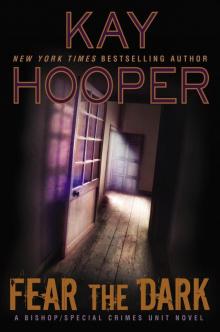 Fear the Dark
Fear the Dark Illegal Possession
Illegal Possession Stealing Shadows
Stealing Shadows If There Be Dragons
If There Be Dragons Once a Thief
Once a Thief In Serena's Web
In Serena's Web On Wings of Magic on Wings of Magic
On Wings of Magic on Wings of Magic Hostage
Hostage The First Prophet
The First Prophet Through the Looking Glass
Through the Looking Glass Golden Flames
Golden Flames Finding Laura
Finding Laura Haven
Haven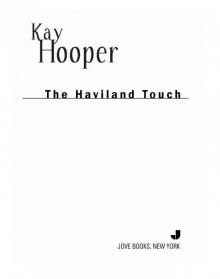 The Haviland Touch
The Haviland Touch The Lady and the Lion
The Lady and the Lion Haunted
Haunted Velvet Ligntning
Velvet Ligntning Blood Ties
Blood Ties Adelaide, the Enchantress
Adelaide, the Enchantress The Matchmaker
The Matchmaker Golden Threads
Golden Threads The Haunting of Josie
The Haunting of Josie Rafferty's Wife
Rafferty's Wife Amanda
Amanda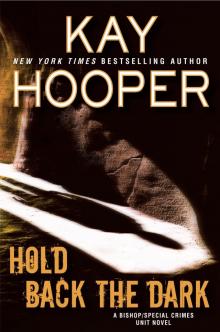 Hold Back the Dark
Hold Back the Dark Sense of Evil
Sense of Evil What Dreams May Come
What Dreams May Come Larger Than Life
Larger Than Life Enemy Mine
Enemy Mine Velvet Lightning
Velvet Lightning The Fall of Lucas Kendrick
The Fall of Lucas Kendrick Aces High
Aces High Captain's Paradise: A Novel
Captain's Paradise: A Novel The Wizard of Seattle
The Wizard of Seattle Lady Thief
Lady Thief Summer of the Unicorn
Summer of the Unicorn Outlaw Derek
Outlaw Derek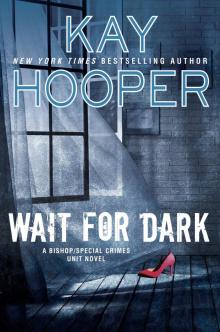 Wait for Dark
Wait for Dark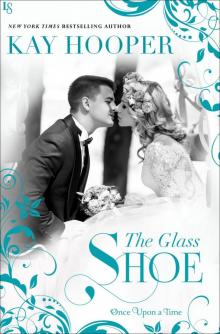 The Glass Shoe
The Glass Shoe It Takes a Thief
It Takes a Thief Zach's Law
Zach's Law Unmasking Kelsey
Unmasking Kelsey Hidden Salem
Hidden Salem